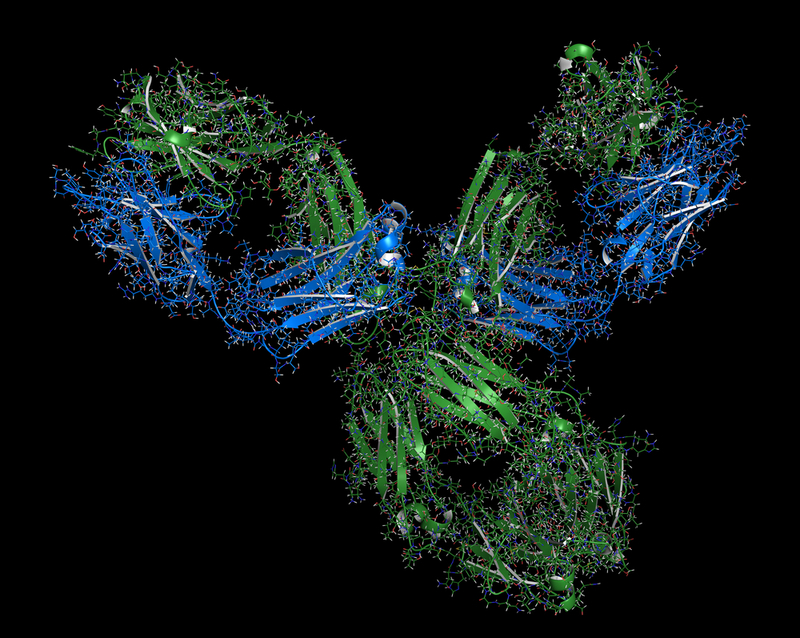Data from two KEYNOTE trials show pembrolizumab benefited patients with advanced small cell lung cancer
AACR Annual Meeting 2019 Newsroom Apr 04, 2019
The anti-PD-1 monoclonal antibody pembrolizumab (Keytruda) showed promising antitumor activity with durable responses in patients with pretreated, advanced small cell lung cancer (SCLC), according to results from a pooled analysis of the two clinical trials, the phase 1b KEYNOTE-028 and the phase II KEYNOTE-158, presented at the AACR Annual Meeting 2019, March 29–April 3.

“Up to 70 percent of patients with SCLC have advanced disease at diagnosis,” said Hyun Cheol Chung, MD, PhD, professor at Yonsei Cancer Center, Yonsei University College of Medicine in Seoul, Republic of Korea. “Current treatment guidelines specify a variety of first- and second-line treatment options; however, for patients who require third-line therapy, there are no specific recommendations and prognosis is very poor.”
Chung and colleagues evaluated the safety and efficacy of pembrolizumab as monotherapy in a pooled analysis of the SCLC cohorts from the KEYNOTE-028 and KEYNOTE-158 multicohort trials. All patients included in the analysis had received at least two lines of prior therapy for advanced disease.
“Our findings show that pembrolizumab monotherapy can provide promising antitumor activity with durable clinical benefit and manageable toxicity in patients whose disease has progressed after two or more lines of prior therapy for advanced SCLC,” Chung said.
Of 131 SCLC patients included in the two trials, 83 were eligible for efficacy analyses. Patients from KEYNOTE-028 were required to have PD-L1–positive tumors, but this was not the case for those in KEYNOTE-158.
In the pooled analysis, the objective response rate (ORR) was 19.3 percent, which included two complete responses and 14 partial responses. The median duration of response (DOR) was not reached at the time of this analysis.
Of the 16 responders, nine had responses lasting for at least 18 months. After a median of 7.7 months of follow-up, the median progression-free survival (PFS) was 2 months and median overall survival (OS) was 7.7 months. At 12 months, PFS and OS were 17 percent and 34 percent, respectively, and at 24 months, PFS and OS were 13 and 21 percent, respectively.
“Our findings are particularly noteworthy given that data show that historically, patients with SCLC in the third-line treatment setting have limited survival benefit, with a median DOR of less than two months and median survival of around two to three months,” Chung said. “Our study shows that pembrolizumab monotherapy can provide durable clinical benefit with manageable toxicity in this hard-to-treat patient population.”
Fourteen of the 16 responders had PD-L1–positive tumors. “Given that the two studies differed slightly in their methods for assessing PD-L1–positivity, we did not seek to evaluate the role of PD-L1 in patient selection in this pooled analysis,” Chung said.
“Overall, the adverse events noted were consistent with the safety profile of pembrolizumab and no new safety signals were identified,” Chung said. He added that 13 patients (10 percent) had a grade 3 treatment-related adverse event. Three patients had grade 5 treatment-related adverse events (intestinal ischemia, pneumonia, encephalopathy), and 21 percent experienced an immune-related adverse event (irAE) or infusion reaction. However, there were no grade 5 irAEs and infusion reactions, Chung noted.
Limitations of the study include that it is a retrospective, exploratory, pooled analysis, and that the two trials were single-arm studies, Chung noted.
Funding for this research was provided by Merck Sharp & Dohme Corp. (MSD), a subsidiary of Merck & Co. Chung has received grants/research support from Eli Lilly, GlaxoSmithKline, MSD, Merck-Serono, and Bristol-Myers Squibb/Ono, Taiho; honoraria from Merck-Serono, and Eli Lilly/Foundation Medicine; and is a consultant to Taiho, Celltrion, MSD, Eli Lilly, Quintiles, BMS, and Merck-Serono.
This article is a press release from The American Association for Cancer Research (AACR) Annual Meeting 2019. Read the original here.
-
Exclusive Write-ups & Webinars by KOLs
-
Daily Quiz by specialty
-
Paid Market Research Surveys
-
Case discussions, News & Journals' summaries